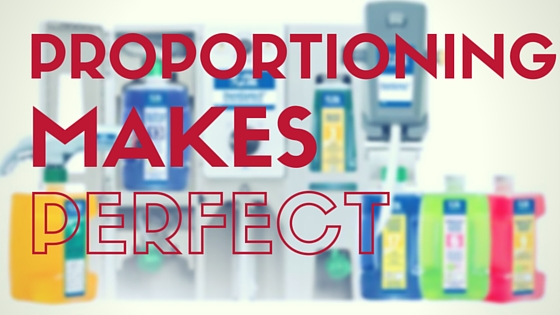Dilution Control
Dilution Control Systems are gaining in popularity every day. And with good cause. Facility managers are becoming more aware that a system which accurately measures and dispenses cleaning chemicals is more preferable. They are much more cost effective than Ready-To-Use products and more efficient than guessing and randomly pouring chemical in a bucket or an automatic scrubber. Accurate measuring assures that you get an end use product that is the most effective and cleans better without waste or misuse. It also assures that you are using a product that is produced the way the manufacturer intended. A product that is not over or under diluted, and will meet all the claims for sanitizing, disinfecting, or general cleaning listed on the chemical manufacturers specification sheets.
WHAT IS DILUTION CONTROL?
Through the use of dilution equipment, chemical concentrates are accurately metered with water and are dispensed as ready-to-use cleaning solution. There are 2 types of dilution control systems. Partial Loop and Closed loop. A partial loop system does not prohibit total chemical exposure when dispensing, replacing or changing out the chemical container. Some of the chemical can splash or drip when changing containers or even when using the dispenser. A closed loop system does provide total containment of the chemical at all points during the replacement and the dispensing process. In a closed loop system the ability to contain the chemical at all points during the replacement and dilution process is critical. This is important because the Environmental Protection Agency (EPA) has stated that U.S. Institutions spend more than 75 million dollars per year in chemical related injuries and lost wages. The EPA has also said 6 out 100 custodial workers are injured each year by exposure to harsh cleaning chemicals.
Why use dilution control? Lets concentrate on the closed loop systems. Although Partial loop systems are available, closed loop systems are safer. There are 3 main benefits.
1. Safety. Through the use of closed loop systems, end users are never in direct contact with concentrated chemicals reducing potential injuries.
2. Dilution Accuracy. Concentrated cleaning chemicals are designed to work best at their targeted dilution levels. Inaccurate dilutions can lead to ineffective cleaning and infectious disease outbreaks. Accurate dilutions lead to optimum product performance.
3. Waste Reduction. More is not always better. Dilution control reduces cleaning costs by up to 30% by accurately mixing the dilution. Unlike the Pouring Method the correct amount of chemical is dispensed every time.
Without the use of chemical dilution systems you run the risk of improper cleaning solutions. This can result in sticky or slippery floors, unclean surfaces, and improper sanitization or disinfection. You also run the risk of personal injury to the custodial staff. Proper training is required. Closed loop dilution control systems typically come in either a single bottle or 4 bottle units. That is, they hold either 1 or 4 bottles of concentrated cleaning chemical. There are also remote, hand held closed loop systems for those times when a wall mount unit isnt available or convenient. Closed loop systems are even available on some brands of automatic scrubbers. They automatically dispense the correct amount of chemical through the scrubber as you scrub your floors. No pre mixing is necessary. Just fill the automatic scrubber with water and the chemical is automatically dispensed through the system.
The proper installation and connections are crucial to ensuring the system runs properly. When choosing a chemical dilution system, make sure to contact a reputable chemical distributor that offers a complete line of chemicals and can provide the training and education necessary for safe implementation.
Contact us here at The Rhiel Supply Company and we will be able to provide you with the chemicals, dilution control systems, education and training necessary for a reliable and safe program.


